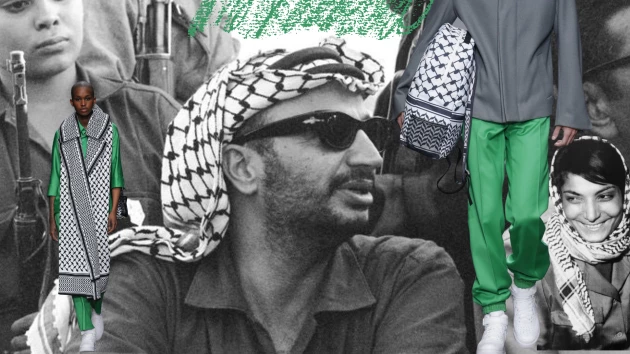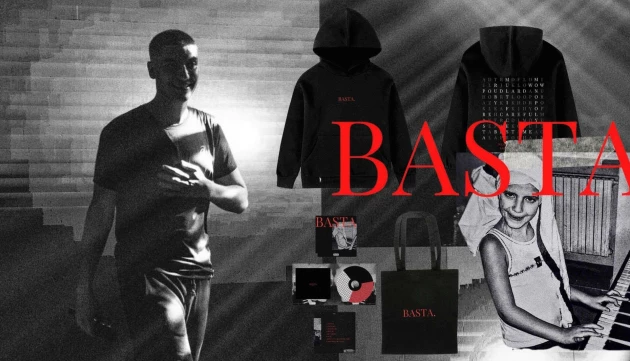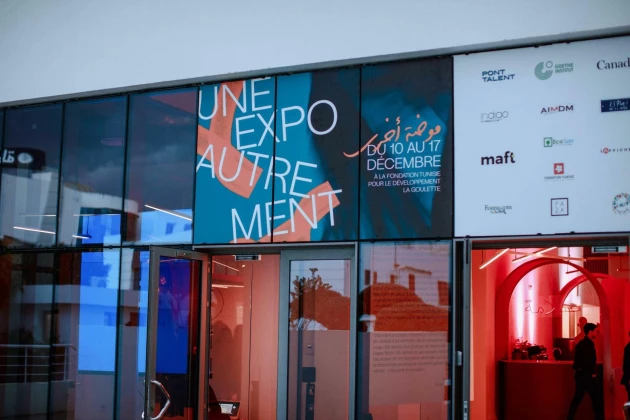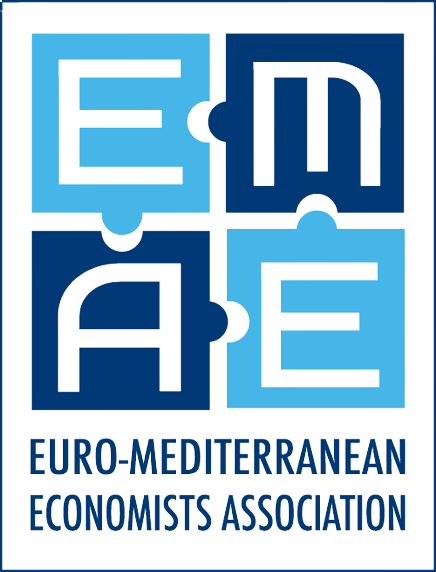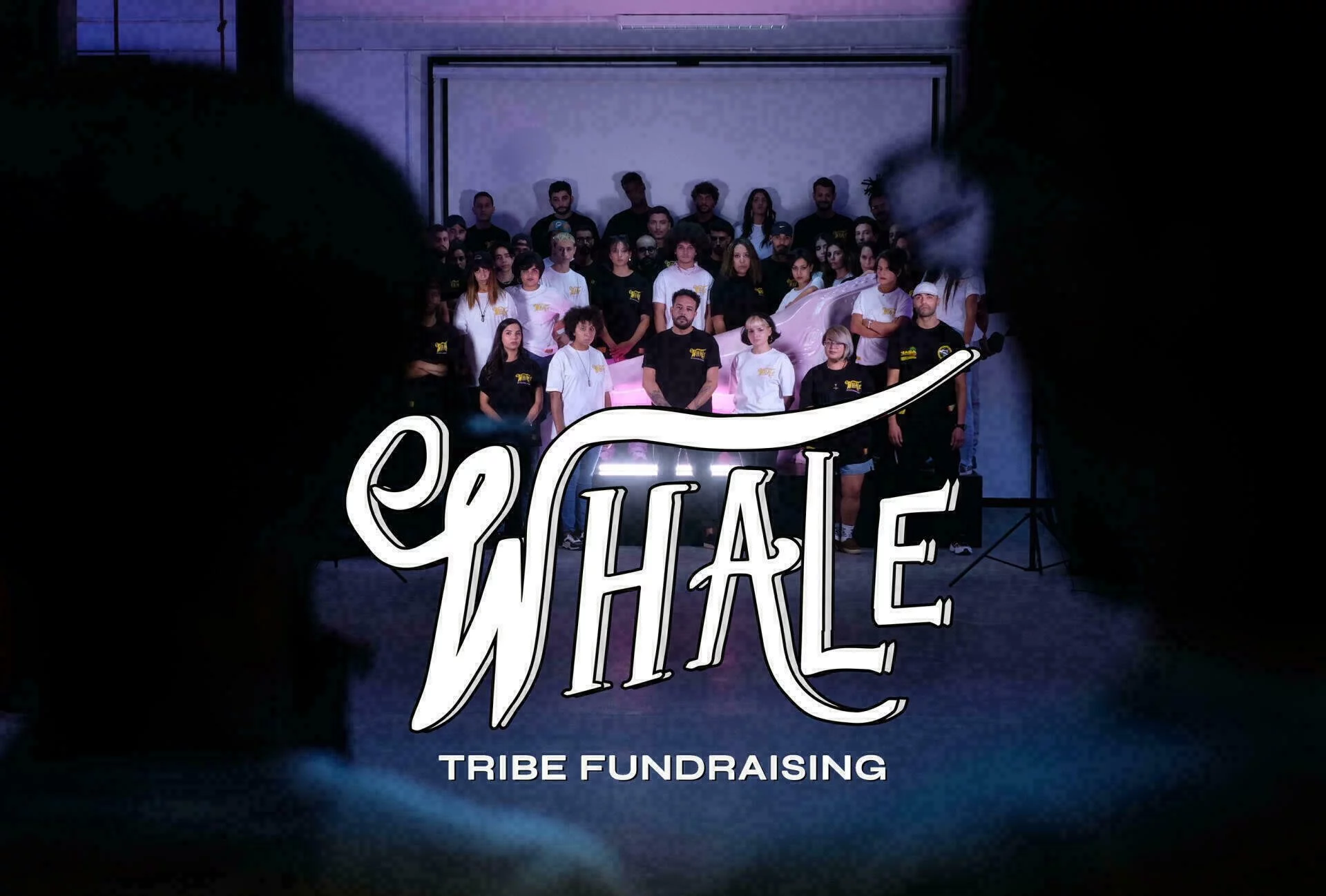
We celebrate the difference
Interview with the Co-Founder of ACS Wassim Ghozlani: The Untelevised Version
11 min read — Dec 08, 2021
Hello Mafters! It’s been a while! Did you miss us? Because we sure did.
Your friendly magazine Maft is here to bring you the latest in fashion, art, and culture, to brighten these cold days ahead of us. So Buckle up!
Today we’re going to talk about our favorite emerging startup in art and culture: ACS!
If you’re an avid reader who’s been paying attention, we’ve mentioned ACS before when we gave our review on Whale Festival back in September.
Now it’s time to give you the scoop about the people behind it. They came here with a mission, in the words of their leader Wassim Ghozlani: ‘To strengthen the place of creative economies in a society in eternal boiling of creativity and innovation. To give creative voices a field of expression and exchange with innovative and technological collaborative solutions. We want to prove that art and culture can be a formidable tool for individual and social growth, as well as for economic development. To reinvent society through art and culture.’
I had the pleasure to talk with one of ACS’s founders Wassim Ghozlani, who has quite the achievements with an established career in Photography and Art direction as well as other successful projects like Maison de l’Image and The Tunisians.
We had a lovely remote lunch date filled with insight and inspiration where we discussed the startup’s past, present, and future in order to give you the untelevised version.
— How did ACS, the idea, come to life?
The ACS project came in a tough period at the center of the pandemic, where we had to close Maison de l'image and The Tunisians. We felt art dying in Tunisia. The executive team consists of me and my skilled co-founders Nadia Redissi, Amine Landoulsi, and Arbi Dridi.
We asked ourselves, how can we reinvent ourselves and society? We were put in a position where the advantages we had disappeared: no more space and no more revenues. So we had to alter our ways, we had to improve our visibility and fix our issues to distribute our products, and reach more people. We learned from our mistakes and the challenges we’ve been through. We started fresh with our experiences and started gaining insights from many people, consultants, and artists to create a successful structure. Our first team consisted of youth that we trained, then with their help, we made a clear road map and took our time to set out objectives for this year and the next one. We created from zero a well-structured business model. We started the new project from scratch, and we didn't want anyone to associate us with our previous work. This is not Maison de l’Image, this is not The Tunisians. THIS IS ACS. Art Culture Studio is here to reinvent society through art and culture. And with that mindset, we held the first summer edition of the Whale Festival.
—What issues did you want to solve?
We believe that if we’re going to change something we can’t do it alone in the creative arts sector, we need people who share the same vision, a united community instead of a shattered one. We are everywhere online, on different channels, and we saw that we require a framework to connect everyone and evolve in it with the ongoing challenges that we keep facing. We said, let’s create a base, an ensemble of tools, a platform that unites the community and gives the underground scene more visibility with the world. A platform to highlight and promote its members, our own independent media to express with other alternative media for more access and visibility to spread the vision, to connect and branch out with people.
— Where did the inspiration come from to create The Astronaut and the Whale Story? Why did you choose these personas?
It was originally my idea. I always loved storytelling, the kind that everyone can relate to, and where the story had to show indirectly ACS’s vision and values. The astronaut is a metaphor for the artist, the creative who’s misunderstood and stuck at the moment, looking for all the means to create what it wants on earth but couldn’t find anything. So he put on the astronaut suit and left to roam space, in the search for the tools he needed. Under that suit, it could be anyone. The person under it is genderless and ageless.
The Whale represents the memory of the earth. It is an important animal in nature with its shape, its diverse history, its representation of the beach and environment. It was also an animal that’s been chased for so long, even though it caused zero harm. On the contrary, its impact on earth is so beneficial. I never heard anyone saying they hate whales, meaning it is loved. It looks inaccessible in Tunisia, but they do pass by sometimes by Hawariya, but many think otherwise.
It’s an animal that represents a rarity. Then my artistic side took over, and the story evolved into an animated story. That’s part 1 of the journey. The story continues, you have to stay tuned for that.
— What is Fashion for ACS? Are you working on something right now related to this field?
We’re still in the beginning. At the Whale festival, we focused on the music, but that’s not our only focus in this startup. For our next collaboration, we’re going to launch a call for action for more artists and designers, to enhance our knowledge and directory. Fashion to us is the combination of trends, sustainable fashion, thrift shops, upcycling, fabrics, and tissues. We want to give value to each aspect of it, like the materials used and the workers behind it. We aspire to learn more about the industry and find our balance, our perspective of it. We're still reflecting and collecting data.
— How was the experience collaborating with Fichier Caché?
A really beautiful experience. I knew Nyzar Trabelsi (Founder & Creative Director of Fichier Caché) for a while now, and we collaborated on other projects as visual designers. This time we created a mini capsule, one of the approaches that we want to enforce in the future. We want to develop collaborations, partnerships and channel their process to learn from them and fusion together. It was a great experience, but the timing wasn’t good. We wanted to launch at the whale festival, but the product wasn’t ready then. The financing was a bit catastrophic. We’re still testing things, we still need time to experiment and mature. We were very tight on schedule and always multitasking but really happy with this capsule and in the second edition of the festival in March, I think it will get the deserved recognition.
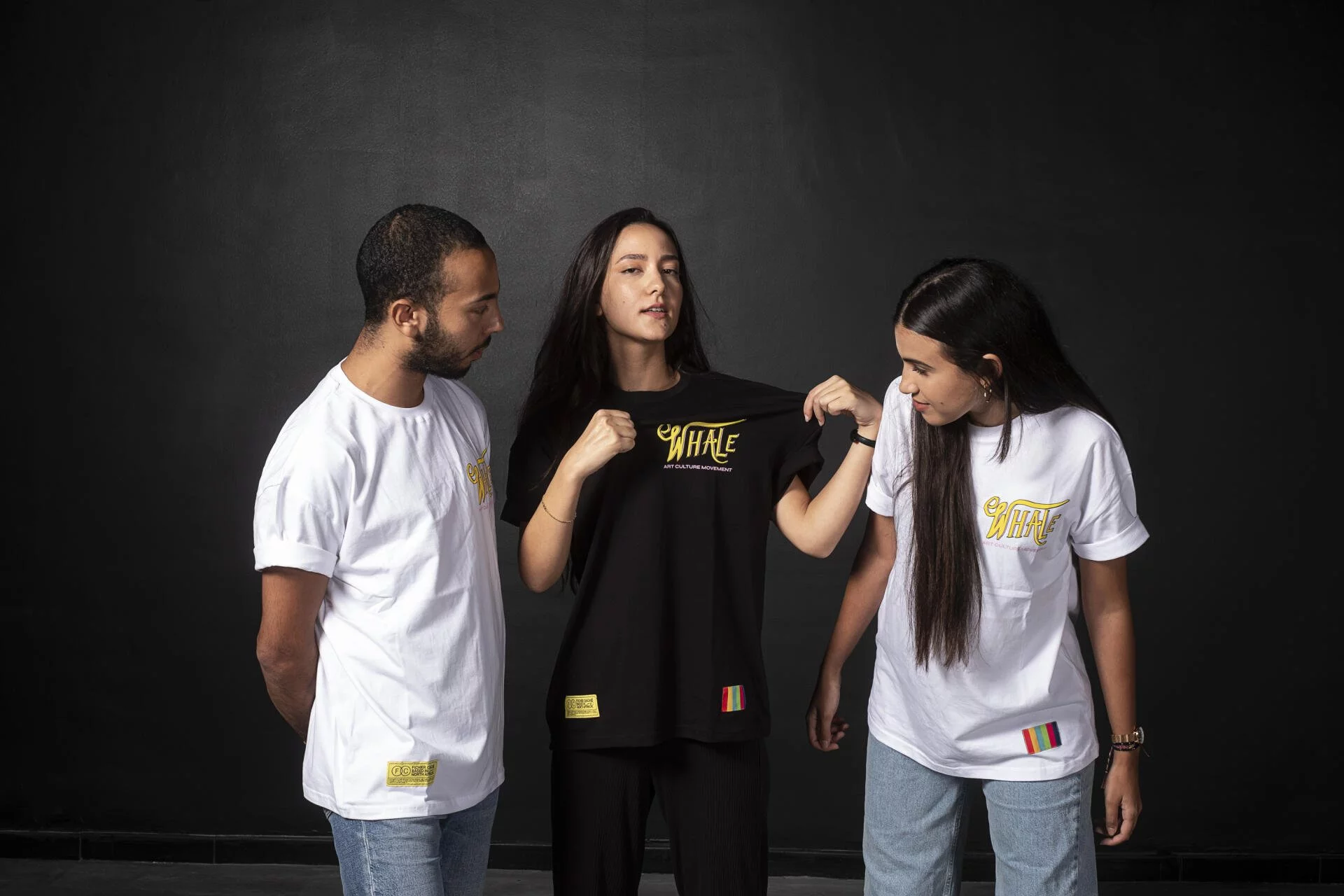 Credits to : Amine Landolsi
Credits to : Amine Landolsi — Any upcoming collaborations with Brands?
Brands not really, but artists yes. We’re cooking something with a certain artist. It will be revealed soon.
— What does your logo represent?
The three-stripes logo represents us, in Art Culture Studio we always think in blocks and modules, therefore it’s the shapes of something that’s getting built and also a bit close to the music theme. We feel it's a simple logo that’s straight to the point.
The colors represent our different focuses, each color for a focus like Red for Art, Pink for Fashion, and Blue for Music, etc…
It’s also a representation of the old version of TV it had those striped colors on. We’re very oriented towards aesthetic visuals and video media.
— You got rejected by the Startup Act label, do you think they don't understand creative projects or was your presentation or structure not strong enough for them to accept?
We met every criteria. They said we were still in the idea phase that we didn’t have concrete tangible products. It was a weird thing to say for an art project, we don’t function the same way as tech startups, we need the time to develop and create.
We were kinda happy not to get it. We just wanted an administrative legal framework that helped us in dealing with all the paper works and administrative necessities. We didn't see the use of it in something else. The Startup Act label is more focused on tech and entrepreneurship. We discovered that we require our own art and culture label that understands the cultural and creative ecosystem that we function in and helps startups and projects in the art to survive and prosper. So we got the first funding from the DROSOS Foundation and launched our WTF* (Whale Tribe fundraising).
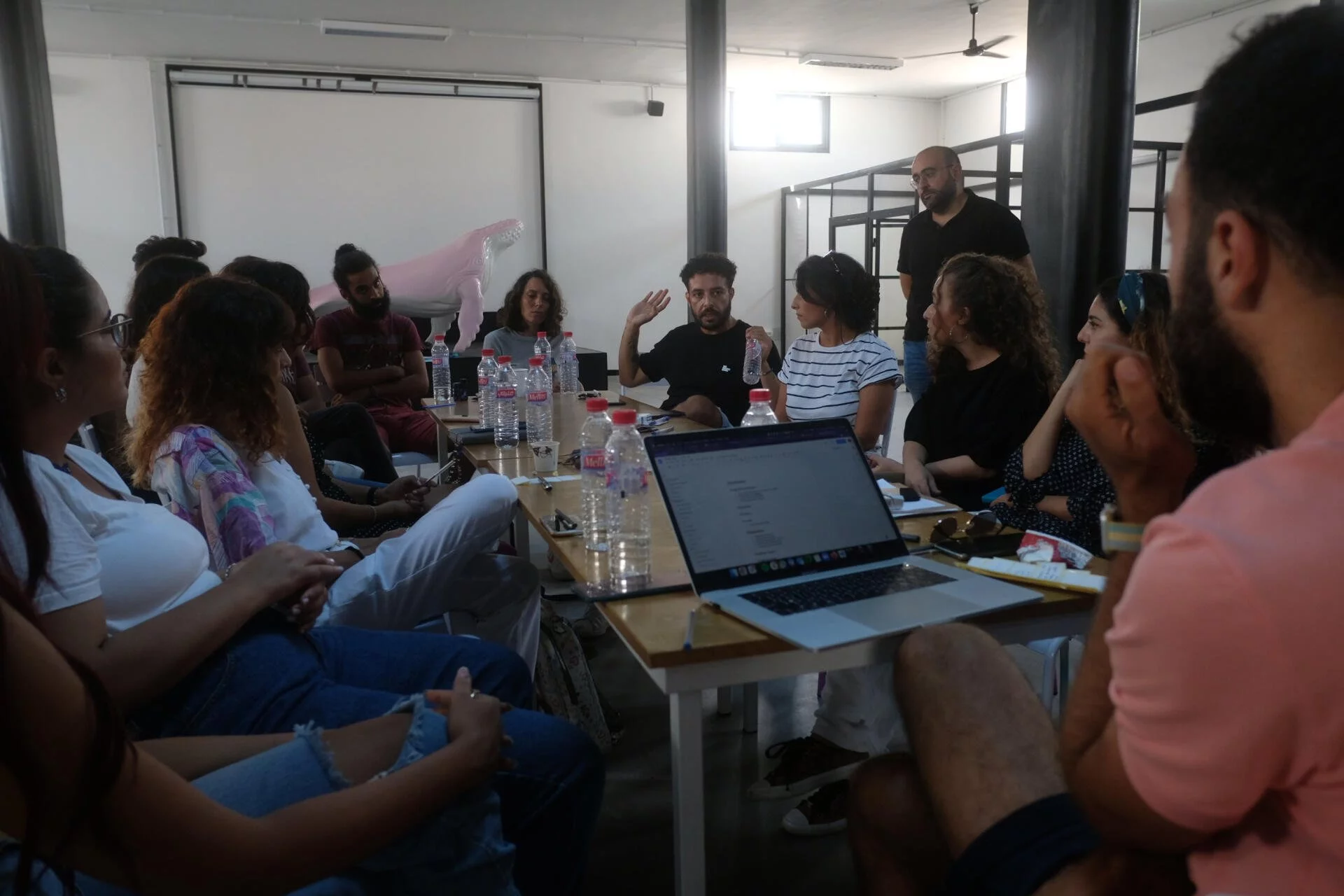 Credits to : Amine Landolsi
Credits to : Amine Landolsi — Tell us about the vision behind the fundraising through the membership cards and the Tribe.
For the campaign, our first art project was the Whale Festival and the cultural platform. So now we’re building a new funding model to help us create a concrete digital platform that contributes to the promotion of native artists and brands and a lasting base to finance our activities independently of third parties interventions. The ACS Membership Card is the first cultural card made by artists for artists in Tunisia and North Africa. We aspire to have the full artistic and political freedom to achieve greatness. This system exists in soccer, as I remember from my youth having a membership card to my favorite local team and having access to exclusive deals. But art and soccer have different audiences. Now we have to convince people of this system’s efficiency in culture. We hope to reach this awareness by this year, especially since the raised money will help in collaborations and creating activities in total transparency.
— What's the best thing you didn't expect to happen at the Whale festival and the worst unexpected thing?
The best-unexpected thing that’s happened at the festival is the collaborations that were formed and the bonds that got created. The festival created a space for artists to connect and share their passion for music. That was beyond my expectations, and I can’t wait for the public to hear these upcoming collaborations. As for the worst-case scenario, it was of course dealing with the police and with the hotel mismanagement of the event and conflicts that happened. Our staff had to run around all three days to deal with the hotel’s mistakes and such. That was a mess we would’ve loved to avoid.
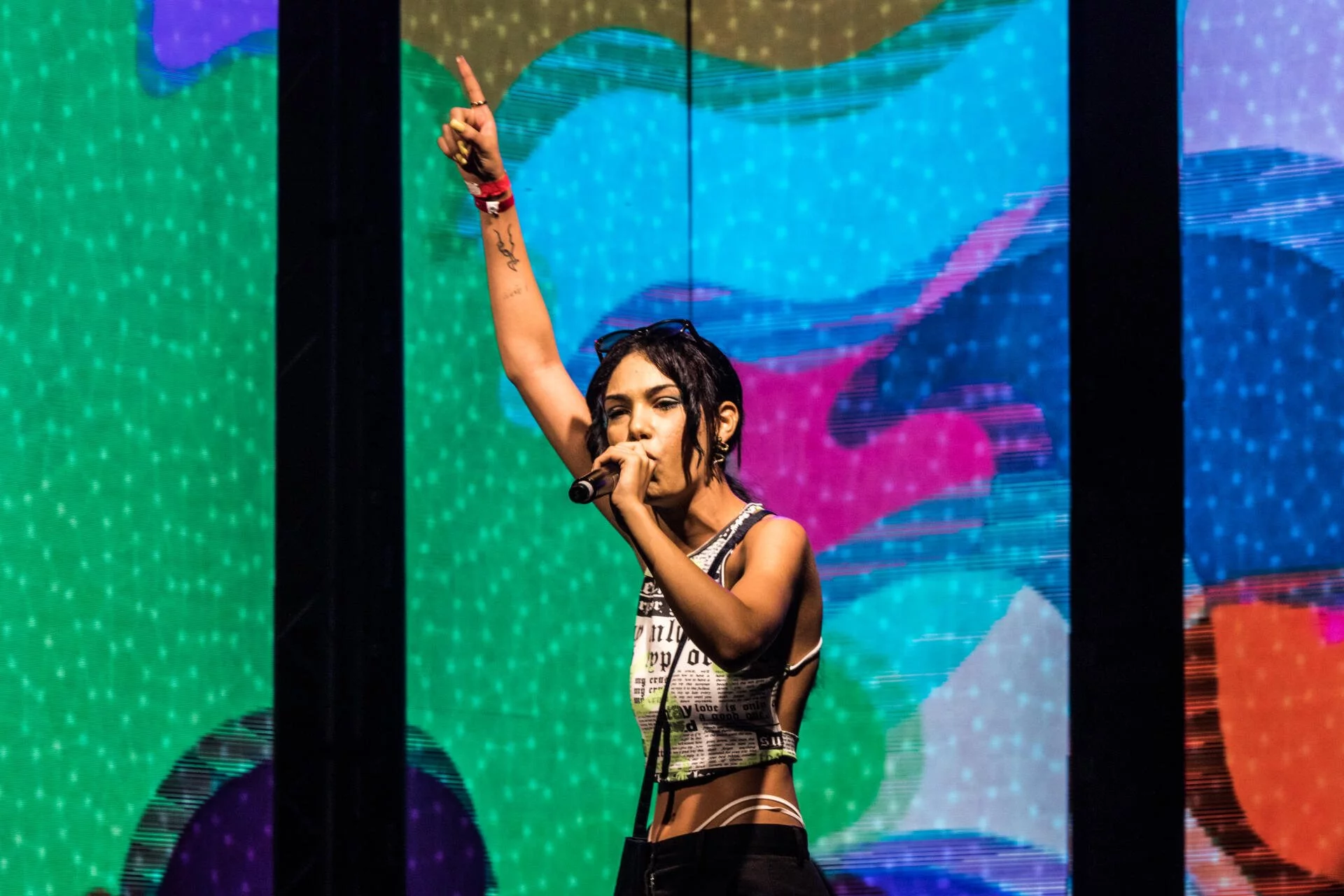 Credits to : Ahmed Zarrouki
Credits to : Ahmed Zarrouki —What are the struggles that the startup is facing?
Our biggest challenge was fighting against time, it was brutal. In a very short period, we did this very intense process of organizing and structuring ourselves and creating the campaigns that only in September we were able to finally start communicating with the public officially. So right now it’s mostly fundraising and reawakening the public after 2 years of slumber and inactivity. We spent two years with zero artistic or cultural events, so people have been struggling. We all have.
So we’re counting on our partners and the membership fundraising plan to help us achieve our goals, and we hope it’ll be successful as to not fall into the same dilemmas we endured before with sponsors and their limits.
— What are the planned activities for the startup that you can share with the public?
Yes, we’re holding an Open House Day at our office in Bhar Lazrag starting the 17th of December until the 24th in collaboration with Minassa (The incubator of the Tunisian cultural and creative scene). We’ll be opening our doors finally to the public on January the 25th. We’ll be sharing our weekly programs in the space, from workshops and talks to Jam sessions and concerts. And finally in March on the 11th, 12th, and 13th hopefully we’ll be holding our Spring 2nd Edition of Whale Festival. In our plan, we’ll be trying to have 2 editions each year, one at the end of summer in September and one before the spring break in March.
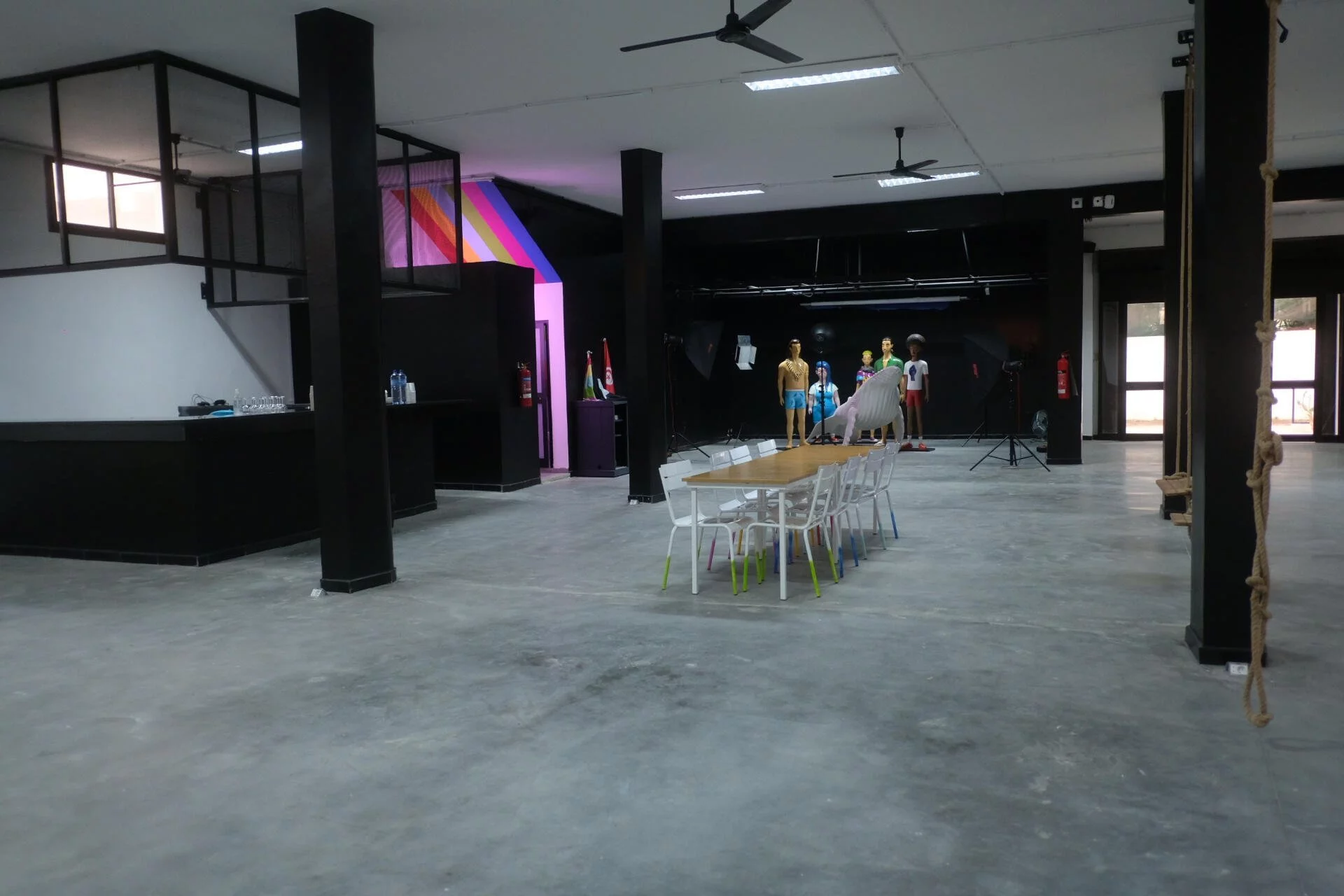 Credits to : Amine Landolsi
Credits to : Amine Landolsi — How do you see tomorrow's creative industry in Tunisia?
I am very optimistic. I see the creative scene going in a great direction. We have very skilled artists that are more aware than ever, we have initiatives and projects that are making progress and can cause a huge change in the creative industry. We have a community that’s getting stronger with its members working together towards the same goal to share and promote art and culture. I’m optimistic, confident, and highly believe that we need to keep making both digital and real-life events. There has to be a balance between the two, as they are both impactful and complementary to each other, even if the world is becoming more and more digital.
—What do you have to say to today’s youth and upcoming/aspiring artists?
Honestly, I don’t see myself as a motivational speaker, I don’t have specific words of wisdom because I trust our youth and upcoming artists. They’re doing well, I see potential and passion. I guess I can advise them to keep it up, to keep shining, and your efforts will be fruitful.
We ended the interview smoothly and agreed on future collaborations to spread the word about ACS and grow the tribe until we dominate and make lasting change.
So if, like us, you believe that art and culture can reinvent society, whether you’re in Tunisia or anywhere around the globe we call for you to join the movement, to join the tribe.
